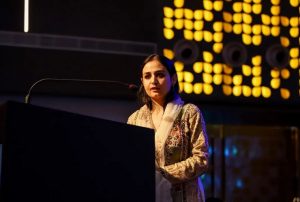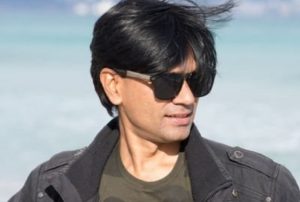In yet another battle with the Indian government in the war that has been going on since last year, Twitter has decided to seek justice for overturning the Narendra Modi administration’s order to remove content and block accounts.
Although the platform complies with the order to avoid legal sanctions stipulated in the strict social media legislation in force in the country, it is appealing the decision before the judiciary on the grounds that the requests made last week were arbitrary and arbitrary. disproportionate and harms freedom of expression.
Billionaire Elon Musk, who is in the process of buying Twitter and is a fierce supporter of freedom of expression on the platform, did not comment.
Twitter India offices searched in 2021
like Brazil, India has been one of the countries that has suffered the most in freedom of expression in recent years.According to the Article 19 report published by the British NGO last week.
The country has been the fourth most withdrawn country in this regard in the last 10 years, losing 37 points in the process and classified as “in crisis”, the worst indicator of the freedom of expression index.
Tackling digital media companies is part of the print context. In February 2021, the government issued a decree regulating the performance of social media platforms, specifying that all must have a legal representative in the country, and removing posts at the government’s request.
In May 2021, Indian police raided and searched Twitter’s offices after the social network labeled tweets posted by members of Modi’s Bharatiya Janata Party (BJP) as “manipulated media”.
Posts that received these tags, which are also used by the platform for state-owned or government-affiliated media, attacked members of the opposition who criticized Modi’s actions in the pandemic.
At the time, the company said the Indian police action was a form of “intimidation”.
Twitter’s lawsuit was motivated by an order received last week demanding the removal of “political content” posts by official party representatives.
Among the publications was one of the American NGOs. Freedom House has questioned restrictions on freedom of expression in the country after its founding.
The social network responded to these and other requests, but decided to file a lawsuit in the Karnataka High Court in Bangalore.
In the complaint, Twitter alleges that the Indian government has threatened to sue the company’s local representatives if orders are not followed.
According to an estimate by the Sensor Tower website, India is one of the most important markets for Twitter, with around 48 million monthly active users.
The restrictions imposed by the legislative change prevent the company from growing domestically.
In the wake of the Twitter action, Rajeev Chandrasekhar, India’s technology minister, released a statement on Tuesday that could be interpreted as a message to the company:
“In India, all foreign Internet intermediaries/platforms have the right to go to court.
However, ALL intermediaries/platforms operating here are also obliged to comply with our laws and rules.”
In India, all courts and judicial review, including foreign Internet intermediaries/platforms, are available.
However, ALL brokers/platforms operating here also have a clear obligation to comply with our laws and rules. #Open #Trustworthy #responsible #Internet
– Rajeev Chandrasekhar ???????? (@Rajeev_GoI) July 5, 2022
India changes the law to have more control over the internet
In the lawsuit filed this week, Twitter defended itself, saying it didn’t want to change the country’s laws, but understood that it had interpreted India’s new regulatory law “too broadly”. ) who had legal action access.
Since the law was enacted last year, the social network has already removed hundreds of users and posts at the government’s request, including tweets criticizing Modi, fighting the pandemic, public protests and questions about restrictions, civil liberties, press and expression. .
The new rules also forced foreign companies to hire executives based in India or India as a way to comply with federal mandates – and if that doesn’t happen, those executives could be held legally liable and even arrested.
After their offices were occupied last year, Twitter reacted sharply, demanding that the Indian government respect freedom of expression.
Also Read | India bans Pulitzer Prize-winning Reuters photojournalist from traveling abroad
WhatsApp also reacted to the pressure from Modi, filing a lawsuit last year demanding that the rule be disregarded so that users’ messages are not encrypted so they can be tracked. According to the NYT, this case has yet to progress in Indian justice.
India is known for restricting the individual freedoms of its citizens and the media. country is occupying 150th place out of 180 countries In this year’s Reporters Without Borders Press Freedom Index.
While cases of judicial harassment against journalists are common, Rana Ayyub one of the most persecuted opposition voices in the country.
In one case that made headlines around the world recently, police used religion as a justification for the June 27 arrest of Muslim journalist Mohammed Zubair, co-founder of India’s leading information-control site Alt News.
Also Read | India uses ‘religious insult’ as reason to arrest Modi government journalist
Entities reacted strongly to Zubair’s arrest and warned – as now on Twitter – of the “crisis” of freedom of speech and press freedoms facing Indians.
And a week ago, a Pulitzer Prize-winning Reuters photojournalist who had to travel to Paris to attend events related to his awards was prevented from traveling when he tried to board a plane.
Read more
source: Noticias
[author_name]

